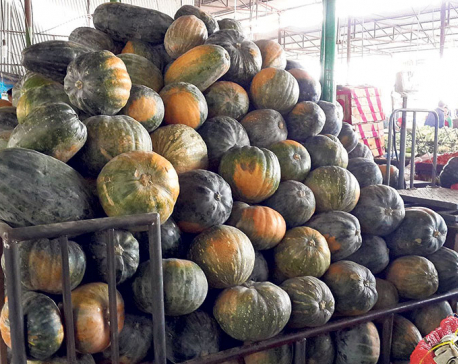
OR
Pesticide residue testing labs set up in six more cities
Published On: November 13, 2017 09:22 AM NPT By: Republica | @RepublicaNepal
BUTWAL, Nov 13: Buoyed by the success of Rapid Bioassay of Pesticides Residue (RBPR) lab set up on the premises of Kalimati Fruits and Vegetables Market, the government has established six more such laboratories in six different cities.
Rajiv Raj Bhandari, a senior plant protection officer with Plant Protection Directorate, told Republica that the laboratory has been set up at Birtamod, Sarlahi, Pokhara, Butwal and Nepalgunj. These labs came into operation from July. The government spent Rs 600 million to set up such labs.
“After successful operation of the lab stationed at the Kalimati Fruits and Vegetables Market for the past three years, we have now opened such labs in other major cities of the country. Our technicians will test fruits and vegetables grown in the respective areas and ascertain if they are fit for human consumption,” added Bhandari.
According to Bhandari, fruits and vegetables having residue of chemical fertilizers that cause detrimental effects on human health have been destroyed in different cities after the labs came into operation. “This has made farmers alert. Now, farmers themselves are reducing use of chemical fertilizers and pesticides,” he added.
Technicians say results of lab test come within two hours. Samples of fruits and vegetables are dipped into bromine water for 20 minutes and then tested for chemical fertilizers, insecticide and pesticides residue. If the results show that the residue is above 45 percent, the vegetable is declared unfit for consumption. Likewise, if the concentration is between 35 and 45 percent, the vegetable can be consumed after two days, and below 25 percent means safe for consumption.
Officials of Butwal RBPR laboratory say that they have been testing a minimum of four-five samples every day.
Establishment of these laboratories has also made local farmers aware of the negative impacts of uncontrolled use of pesticides in fruits and vegetables, they added.
You May Like This

No pesticide residue testing at most vegetable markets in Valley
Other major vegetable markets of the Valley including the ones at Balkhu, Baneshwar, Koteswar, Balaju, and Chabahil, let alone the... Read More...

SC hearing on pesticide residue tests case today
KATHMANDU, June 10: The Supreme Court (SC) has scheduled the initial hearings on the case of pesticide residue tests for the... Read More...

Ncell 4G now available in 10 more cities
KATHMANDU, July 31: Ncell Private Ltd has expanded its fourth generation (4G) mobile Internet service to 10 more cities. ... Read More...






Just In
- Challenges Confronting the New Coalition
- NRB introduces cautiously flexible measures to address ongoing slowdown in various economic sectors
- Forced Covid-19 cremations: is it too late for redemption?
- NRB to provide collateral-free loans to foreign employment seekers
- NEB to publish Grade 12 results next week
- Body handover begins; Relatives remain dissatisfied with insurance, compensation amount
- NC defers its plan to join Koshi govt
- NRB to review microfinance loan interest rate











Leave A Comment